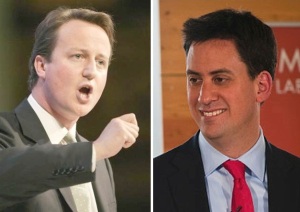So often in this country it seems as if the tone and tenor of our national debates ends up being so personal and vitriolic that we lose sight of the significant

philosophical differences that are really at the heart of this discussions. Think about it, when John Boehner or Mitch McConnell respond to something President Obama has said, it’s always along the lines of challenging the President’s character, sincerity or capacity to do his job.
Of course, the character assassination goes both ways. In acknowledging philosophical differences with Republicans, we Democrats rarely rush to acknowledge that conservatives views are based on the reasonable assumption, as wrong as it may be, that our national well-being is dependent on flourishing, unfettered free-enterprise system. We’re more apt to accuse them of protecting rich people and corporate America under the camouflage of not want to limit the capacity of “job creators.”
In the shadow of the horrendous rioting that rocked Great Britain in recent weeks, the Conservative Government Prime Minister, David Cameron and the Labor Party’s leader, Ed Miliband have offered incredibly different reactions to the riots that really highlight the classical philosophical divide between liberal and conservative principles.
In a recent address in his constituent district, the conservative Prime Minister observed:
“Social problems that have been festering for decades have exploded in our face. Irresponsibility. Selfishness. Behaving as if your choices have no consequences. Children without fathers. Schools without discipline. Reward without effort. Crime without punishment. Rights without responsibilities. Communities without control. Some of the worst aspects of human nature tolerated, indulged, sometimes even incentivized, by a state and its agencies that in parts have become literally demoralized.”
Sound vaguely familiar? In this country, a Republican would have simply accused Democrats of promoting a valueless, immoral culture of whiny-lazy people who are dependent on entitlement programs.
In response to the Prime Minister, Ed Miliband assailed the government’s punitive approach, saying “tough action against gangs” and other steps favored by Mr. Cameron needed to be complemented by actions to “show young people there’s another way.”
- One side is seeking law and order, the other insists that social conditions be examined to identify and address human needs.
- One side demands that individuals assume responsibility for their actions, the other disparages knee-jerk responses that criminalize people who are acting out of fear and desperation.
- One side is committed to implementing punitive repercussions; while also seeking order and civility, the progressives reject efforts to criminalize and denigrate the humanity of groups and individuals.
Echoing Richard Nixon’s famous characterization of a “silent majority” of Americans who were troubled by the political and social turbulence of the 1960’s and ’70’s, Cameron suggested that “the responsible majority” (of Britons) were crying out for their government to restore order. “On schools, welfare, families, parenting, addiction, communities, on the cultural, legal, bureaucratic problems in our society, too; from the twisting and misrepresenting of human rights that has undermined personal responsibility to the obsession with health and safety that has eroded people’s willingness to act according to common sense.”
On the other hand, the Labor leader called for a “national discussion that would give people a chance for their voices and views to be heard.” Responding to the government’s eviction of rioters from state subsidized housing, Miliband warned that efforts to encourage responsible behavior are undermined when primary social supports are punitively removed.
Is there a more fundamental debate between conservative and liberals that how to respond to inappropriate behavior? Whether we’re talking about how parents discipline their children; how teachers bring order to the classroom; or, how politicians address social unrest, the question always being debated is: how do we build human character?
